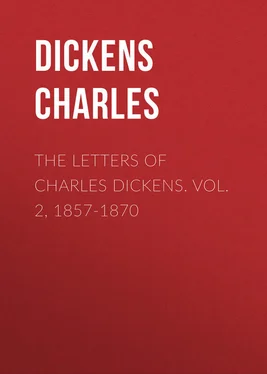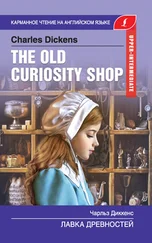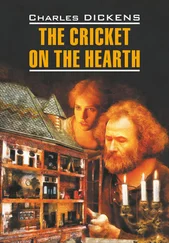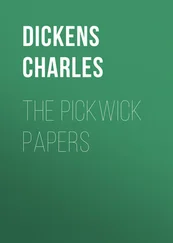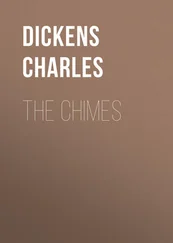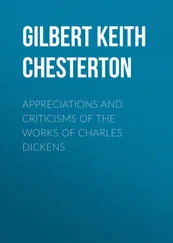Чарльз Диккенс - The Letters of Charles Dickens. Vol. 2, 1857-1870
Здесь есть возможность читать онлайн «Чарльз Диккенс - The Letters of Charles Dickens. Vol. 2, 1857-1870» — ознакомительный отрывок электронной книги совершенно бесплатно, а после прочтения отрывка купить полную версию. В некоторых случаях можно слушать аудио, скачать через торрент в формате fb2 и присутствует краткое содержание. Жанр: foreign_antique, foreign_prose, на английском языке. Описание произведения, (предисловие) а так же отзывы посетителей доступны на портале библиотеки ЛибКат.
- Название:The Letters of Charles Dickens. Vol. 2, 1857-1870
- Автор:
- Жанр:
- Год:неизвестен
- ISBN:нет данных
- Рейтинг книги:3 / 5. Голосов: 1
-
Избранное:Добавить в избранное
- Отзывы:
-
Ваша оценка:
- 60
- 1
- 2
- 3
- 4
- 5
The Letters of Charles Dickens. Vol. 2, 1857-1870: краткое содержание, описание и аннотация
Предлагаем к чтению аннотацию, описание, краткое содержание или предисловие (зависит от того, что написал сам автор книги «The Letters of Charles Dickens. Vol. 2, 1857-1870»). Если вы не нашли необходимую информацию о книге — напишите в комментариях, мы постараемся отыскать её.
The Letters of Charles Dickens. Vol. 2, 1857-1870 — читать онлайн ознакомительный отрывок
Ниже представлен текст книги, разбитый по страницам. Система сохранения места последней прочитанной страницы, позволяет с удобством читать онлайн бесплатно книгу «The Letters of Charles Dickens. Vol. 2, 1857-1870», без необходимости каждый раз заново искать на чём Вы остановились. Поставьте закладку, и сможете в любой момент перейти на страницу, на которой закончили чтение.
Интервал:
Закладка:
Here we have two hundred and twenty stalls let for to-night, and the other tickets are gone in proportion. It is a pretty room, but not large.
I have just been saying to Arthur that if there is not a large let for York, I would rather give it up, and get Monday at Gad's Hill. We have telegraphed to know. If the answer comes (as I suppose it will) before post time, I will tell you in a postscript what we decide to do. Coming to London in the night of to-morrow (Saturday), and having to see Mr. Ouvry on Sunday, and having to start for York early on Monday, I fear I should not be able to get to Gad's Hill at all. You won't expect me till you see me.
Arthur and I have considered Plornish's joke in all the immense number of aspects in which it presents itself to reflective minds. We have come to the conclusion that it is the best joke ever made. Give the dear boy my love, and the same to Georgy, and the same to Katey, and take the same yourself. Arthur (excessively low and inarticulate) mutters that he "unites."
[We knocked up Boylett, Berry, and John so frightfully yesterday, by tearing the room to pieces and altogether reversing it, as late as four o'clock, that we gave them a supper last night. They shine all over to-day, as if it had been entirely composed of grease.]
Ever, my dearest Mamie, Your most affectionate Father.Little Leamington came out in the most amazing manner yesterday – turned away hundreds upon hundreds of people. They are represented as the dullest and worst of audiences. I found them very good indeed, even in the morning.
There awaited me at the hotel, a letter from the Rev. Mr. Young, Wentworth Watson's tutor, saying that Mrs. Watson wished her boy to shake hands with me, and that he would bring him in the evening. I expected him at the hotel before the readings. But he did not come. He spoke to John about it in the room at night. The crowd and confusion, however, were very great, and I saw nothing of him. In his letter he said that Mrs. Watson was at Paris on her way home, and would be at Brighton at the end of this week. I suppose I shall see her there at the end of next week.
We find a let of two hundred stalls here, which is very large for this place. The evening being fine too, and blue being to be seen in the sky beyond the smoke, we expect to have a very full hall. Tell Mamey and Katey that if they had been with us on the railway to-day between Leamington and this place, they would have seen (though it is only an hour and ten minutes by the express) fires and smoke indeed. We came through a part of the Black Country that you know, and it looked at its blackest. All the furnaces seemed in full blast, and all the coal-pits to be working.
It is market-day here, and the ironmasters are standing out in the street (where they always hold high change), making such an iron hum and buzz, that they confuse me horribly. In addition, there is a bellman announcing something – not the readings, I beg to say – and there is an excavation being made in the centre of the open place, for a statue, or a pump, or a lamp-post, or something or other, round which all the Wolverhampton boys are yelling and struggling.
And here is Arthur, begging to have dinner at half-past three instead of four, because he foresees "a wiry evening" in store for him. Under which complication of distractions, to which a waitress with a tray at this moment adds herself, I sink, and leave off.
My best love to the dear girls, and to the noble Plorn, and to you. Marguerite and Ellen Stone not forgotten. All yesterday and to-day I have been doing everything to the tune of:
P.S. – I hope the brazier is intolerably hot, and half stifles all the family. Then, and not otherwise, I shall think it in satisfactory work.
My dear White,
May I entreat you to thank Mr. Carter very earnestly and kindly in my name, for his proffered hospitality; and, further, to explain to him that since my readings began, I have known them to be incompatible with all social enjoyments, and have neither set foot in a friend's house nor sat down to a friend's table in any one of all the many places I have been to, but have rigidly kept myself to my hotels. To this resolution I must hold until the last. There is not the least virtue in it. It is a matter of stern necessity, and I submit with the worst grace possible.
Will you let me know, either at Southampton or Portsmouth, whether any of you, and how many of you, if any, are coming over, so that Arthur Smith may reserve good seats? Tell Lotty I hope she does not contemplate coming to the morning reading; I always hate it so myself.
Mary and Katey are down at Gad's Hill with Georgy and Plornish, and they have Marguerite Power and Ellen Stone staying there. I am sorry to say that even my benevolence descries no prospect of their being able to come to my native place.
On Saturday week, the 13th, my tour, please God, ends.
My best love to Mrs. White, and to Lotty, and to Clara.
Ever, my dear White, affectionately yours.My dear Stone,
Many thanks for these discourses. They are very good, I think, as expressing what many men have felt and thought; otherwise not specially remarkable. They have one fatal mistake, which is a canker at the foot of their ever being widely useful. Half the misery and hypocrisy of the Christian world arises (as I take it) from a stubborn determination to refuse the New Testament as a sufficient guide in itself, and to force the Old Testament into alliance with it – whereof comes all manner of camel-swallowing and of gnat-straining. But so to resent this miserable error, or to (by any implication) depreciate the divine goodness and beauty of the New Testament, is to commit even a worse error. And to class Jesus Christ with Mahomet is simply audacity and folly. I might as well hoist myself on to a high platform, to inform my disciples that the lives of King George the Fourth and of King Alfred the Great belonged to one and the same category.
Ever affectionately.My dear Procter,
A thousand thanks for the little song. I am charmed with it, and shall be delighted to brighten "Household Words" with such a wise and genial light. I no more believe that your poetical faculty has gone by, than I believe that you have yourself passed to the better land. You and it will travel thither in company, rely upon it. So I still hope to hear more of the trade-songs, and to learn that the blacksmith has hammered out no end of iron into good fashion of verse, like a cunning workman, as I know him of old to be.
Very faithfully yours, my dear Procter.1859
During the winter, Charles Dickens was living at Tavistock House, removing to Gad's Hill for the summer early in June, and returning to London in November. At this time a change was made in his weekly journal. "Household Words" became absolutely his own – Mr. Wills being his partner and editor, as before – and was "incorporated with 'All the Year Round,'" under which title it was known thenceforth. The office was still in Wellington Street, but in a different house. The first number with the new name appeared on the 30th April, and it contained the opening of "A Tale of Two Cities."
The first letter which follows shows that a proposal for a series of readings in America had already been made to him. It was carefully considered and abandoned for the time. But the proposal was constantly renewed, and the idea never wholly relinquished for many years before he actually decided on making so distant a "reading tour."
Читать дальшеИнтервал:
Закладка:
Похожие книги на «The Letters of Charles Dickens. Vol. 2, 1857-1870»
Представляем Вашему вниманию похожие книги на «The Letters of Charles Dickens. Vol. 2, 1857-1870» списком для выбора. Мы отобрали схожую по названию и смыслу литературу в надежде предоставить читателям больше вариантов отыскать новые, интересные, ещё непрочитанные произведения.
Обсуждение, отзывы о книге «The Letters of Charles Dickens. Vol. 2, 1857-1870» и просто собственные мнения читателей. Оставьте ваши комментарии, напишите, что Вы думаете о произведении, его смысле или главных героях. Укажите что конкретно понравилось, а что нет, и почему Вы так считаете.
